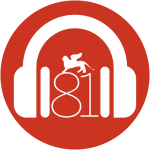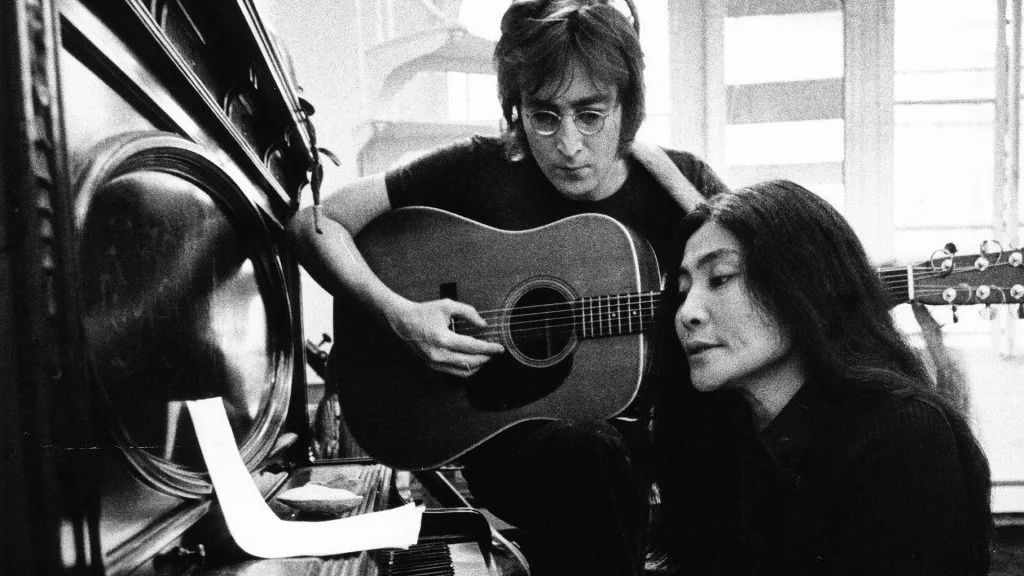

Between one of the events narrated in Andrei Ujică’s TWST / Things We Said Today (the Beatles’ concert at Shea Stadium in New York on August 15, 1965) and those in Kevin Macdonald’s and Sam Rice-Edward’s One to One. John & Yoko (the charity concert John Lennon and Yoko Ono held at Madison Square Garden on August 30, 1972), seven years passed. In Beatle history, seven years is an eternity: every month is as dense as a decade, a temporal abyss. The Beatles toured the US four times, and each of their tours defines a specific moment in their history. The two tours of 1964 (February and August) marked the band’s fame in America, the first British band to do so. By the time their 1965 rolled out, they were rockstars (the concept was new at the time). Their last one, in 1966, made the band leave the world of live performances and focus on studio recording exclusively. Within this process of artistic self-awareness, there is no doubt that the Shea Stadium concert represents the peak of Beatlemania. On that day, the fab four faced an audience of 56,000–mostly frenzied girls. A documentary on that concert portrays the band in the middle of the arena, before a sea of hysterical fans. At times, it seems that the four become aware that they are not, in fact, the protagonists of that moment–the audience is. They sang a handful of songs, some half hour, not more. At the time, that’s how long a concert lasted. What is most unbelievable is the enormous incompetence of the event managers, who employed an absolutely underpowered audio system, the same used by the stadium’s speakers during baseball matches.

After well over a decade of work, Romanian director Andrei Ujică presents for the first time in Absolute Things We Said Today, a documentary about the Beatles’ famous North American tour. The feature film reports a detailed account of the excitement that grippe...

The new documentary by Kevin Macdonald and Sam Rice-Edwards focuses on John Lennon’s final concert after the Beatles’ breakup, held at Madison Square Garden in 1972, with Yoko Ono’s participation. The film offers an intimate look into the life of one of histor...
John Lennon’s and Yoko Ono’s concert of August 1972 seems to come from a whole different era altogether. It was a real concert that made use of perfectly adequate tech, capable professionals, and a leader who knew how to move on stage, even though over the previous six years, he made almost no public appearances. Here, we are looking at the John Lennon who is happy to call New York home and to look at his future free from the burden of being part of the Beatles, so much so than in the playlist of the New York concert there’s only one Beatles song: Come Together from Abbey Road, the Beatles’ last album. When there’s a need for subtlety, you can count on John Lennon!
Not many know this: at their 1965 Milan concert, the Beatles were accompanied by several supporting groups and performers: Fausto Leali, New Dada, and Guidone e i suoi amici, whose leader Guido moved to Athens in the 1960s and kept working with the Beatles every time they visited the Greek capital.
Ten days before the concert, on June 5, 1963, Help! made it to the top of the charts in Britain–ironically, the song was Lennon’s cry for help as he was trying to manage his lightning-fast rise into fame.
You know that–this song, which Cilla Black brought to world fame, is nothing else than a cover of Il mio mondo by Italian singer-songwriters Umberto Bindi and Gino Paoli. It just so happened that on August 27, 1965, the Beatles visited Elvis Presley at his Bel Air villa. At first, they acted cold: Elvis sitting on a chair, the Beatles on the floor, with nary a word exchanged. The air warms up later, as, according to Lennon, they start playing with whatever instruments were in the room. The first song is, you guessed it, You’re My World…
We can say with reasonable confidence that while Paul McCartney populated his songs with literary characters in a form of mythopoiea, John Lennon would rather write of himself, of his being-in-the-world. Yet another proof is this song, which is about Lennon’s detox. In 1969, he pushed this song for the Beatles, who, following the lead of overly-pious McCartney, reject it. One more nail in the coffin for the band, which we consider dissolved by April 10, 1970.
An amazing song by Yoko Ono that does not make it into the album, but only as a 1985 video release. Her feeble voice, oscillating between angelic and demonic, sings some of the most ruthless lyrics in the history of rock. Listen closely to John’s backing vocals…